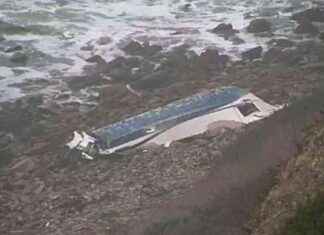Russian deputies approved this Thursday in first reading the 2024-2026 budget project, which provides for a 70% increase in defense spending in 2024, a shift in the Kremlin’s entire policy to finance Russia’s operations in Ukraine.
In total, 320 Duma deputies voted in favor and 80 against, in a sign of Moscow’s determination to continue its operations in Ukraine despite the human and economic cost.
The 2024 budget “is geared towards our main goal: ensuring our victory,” Finance Minister Anton Siluanov told deputies on Thursday before the vote.
“Everything for the front, everything for victory!” said Leonid Slutski, president of the ultranationalist LDPR party and the Duma’s International Affairs Commission.
In September, the Kremlin had considered this explosion of spending “absolutely necessary” to counter the “hybrid war” that, in its opinion, the West is waging by supporting Kiev.
“In a way, the war has become existential for the Russian economy, since most of the demand is now concentrated in the military-industrial sector,” Alexandra Prokopenko, a researcher who formerly worked at the Bank, told AFP. Russian Central (BCR).
As a consequence, the conflict in Ukraine takes a heavy toll on the budget, especially due to the explosion of military orders, the cost of logistics and army salaries.
According to Defense Minister Sergei Shoigu, the Russian army distributes “10,000, sometimes up to 15,000 tons of material” daily.
According to a Ministry of Finance document consulted by AFP at the end of September, defense spending will increase by 68% in 2024 compared to 2023, reaching 10.8 trillion rubles (about $115 billion).
The amount allocated to defense will represent around 30% of federal spending in 2024 and 6% of GDP, something unprecedented in the modern history of Russia.
The 2024 budget will also allow for “the integration of new regions,” territories in eastern and southern Ukraine that Moscow claimed as annexed more than a year ago, according to the Finance Ministry.
Despite the significant defense spending, the State is confident of fulfilling all its social obligations, a few months before the presidential elections to be held in March 2024, in which Vladimir Putin is expected to appear.
In total, federal spending will amount to 36.6 trillion rubles (about $385 billion), a spectacular jump of more than 20% compared to 2023.
Despite Western sanctions, Russia has continued to earn huge revenues through its oil and gas exports, which it has redirected towards countries such as China and India.
The government has also benefited from the ruble’s weakness, as it means the Kremlin earns more from its exports.
In its budget forecasts, the Ministry of Finance foresees that one dollar will be worth around 90 rubles. The currency was trading at 93.5 on Thursday.
However, ruble volatility has stoked inflation in the country and the central bank raised interest rates to 13% in an attempt to curb the rapid rise in prices.
The planned increase in spending “is inflationary, regardless of how it is financed” and “constitutes (…) an external shock to the economy,” warned Russian economist Viktor Tuniov.





